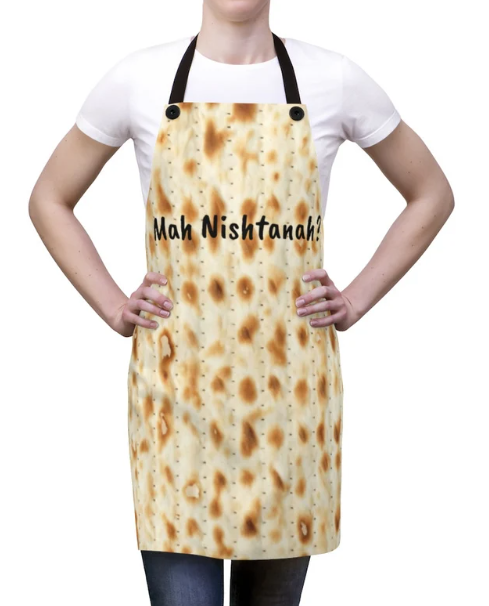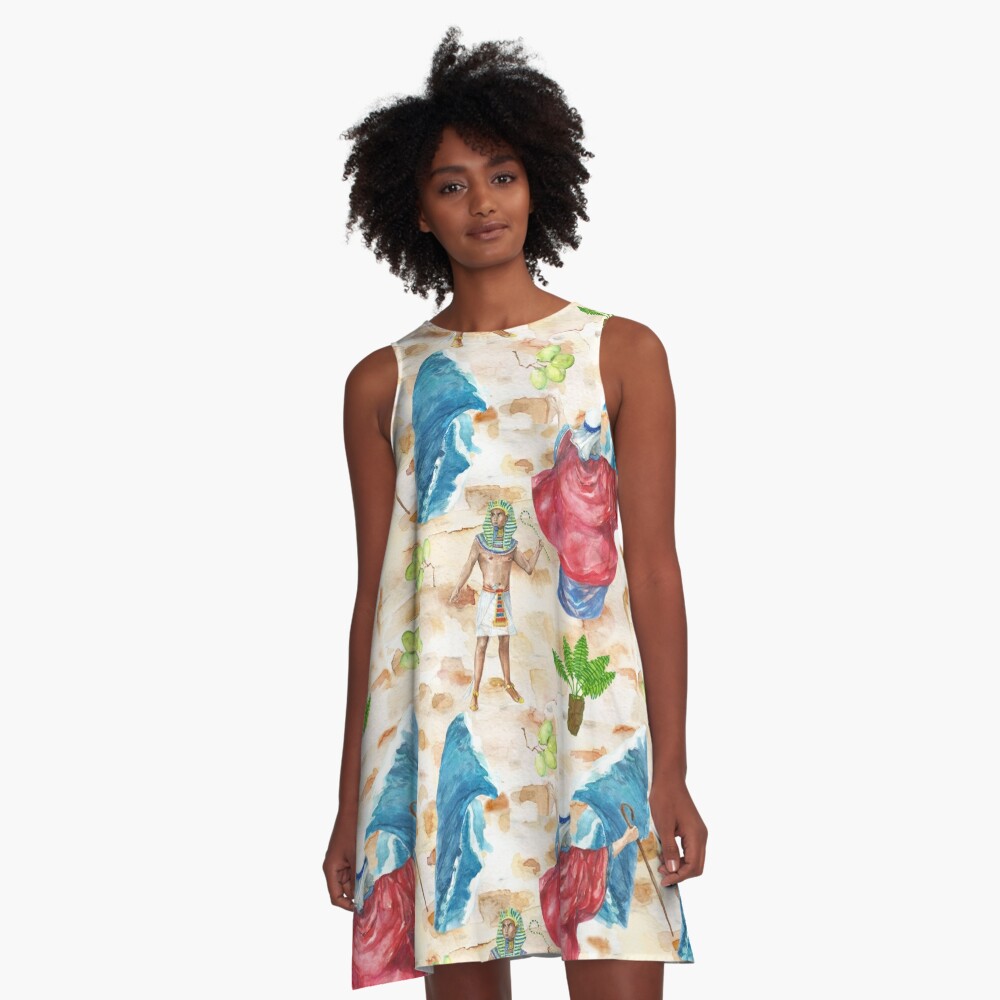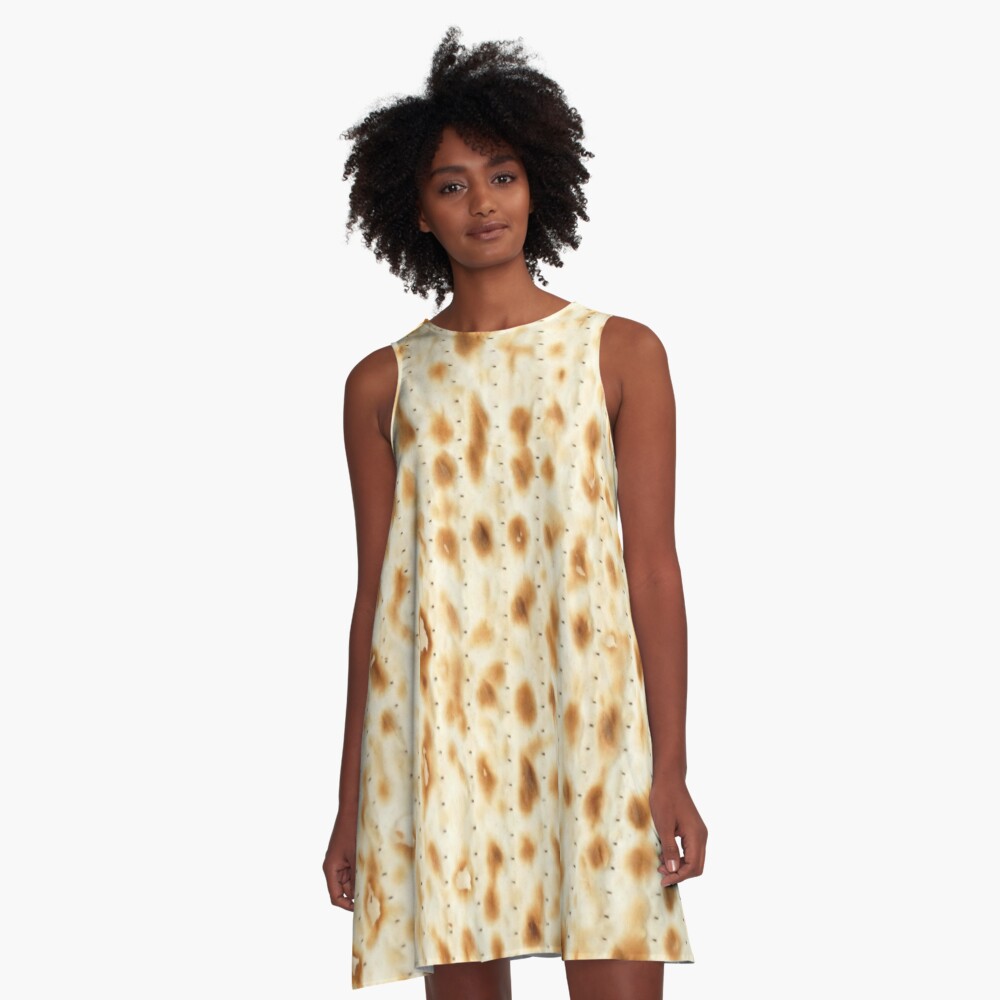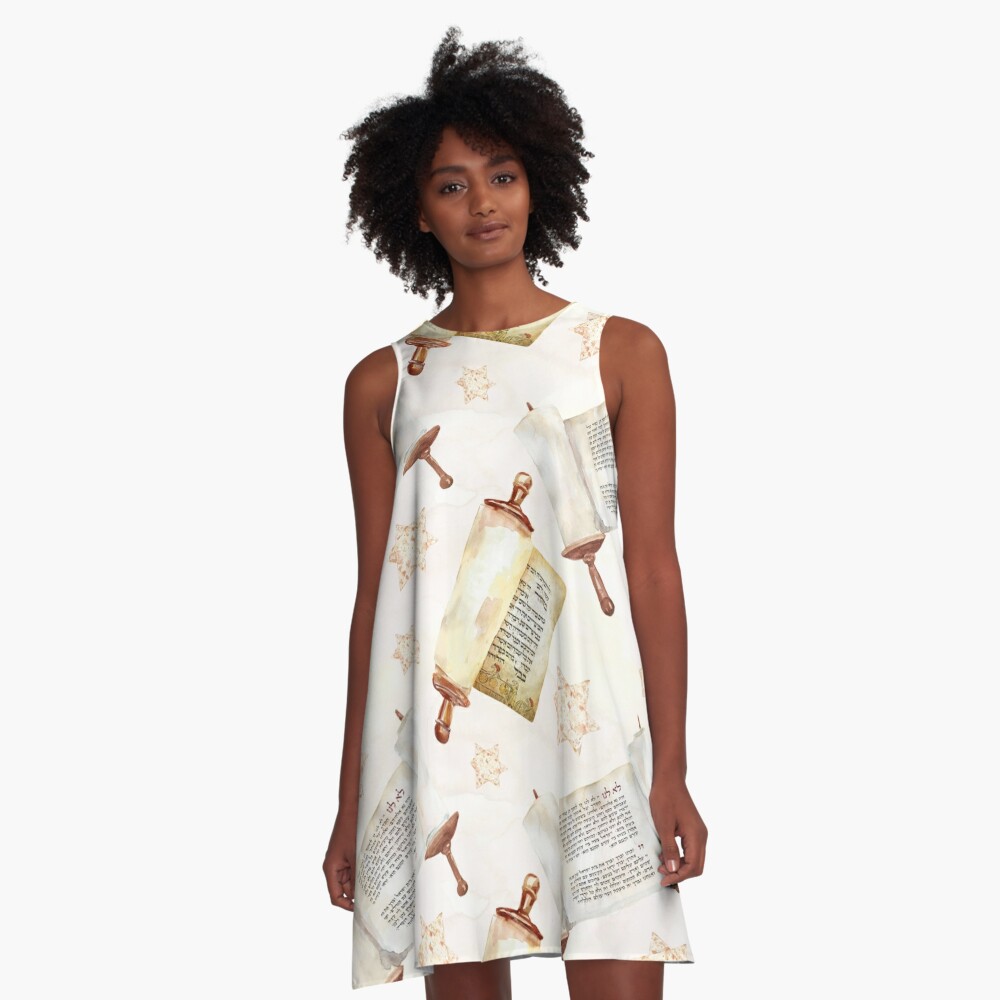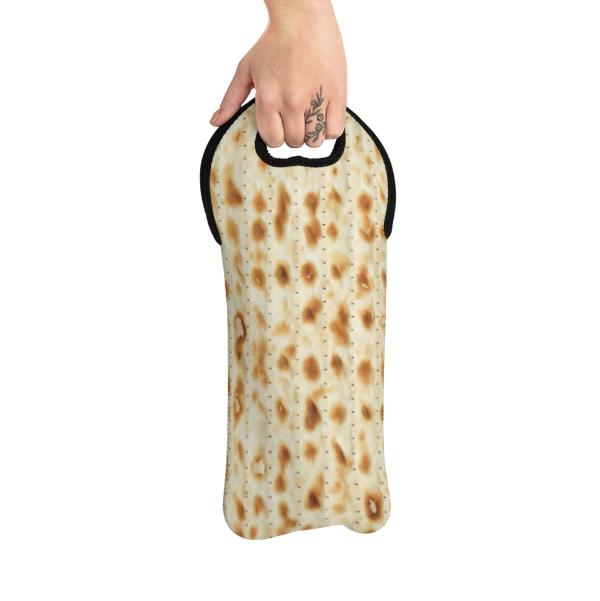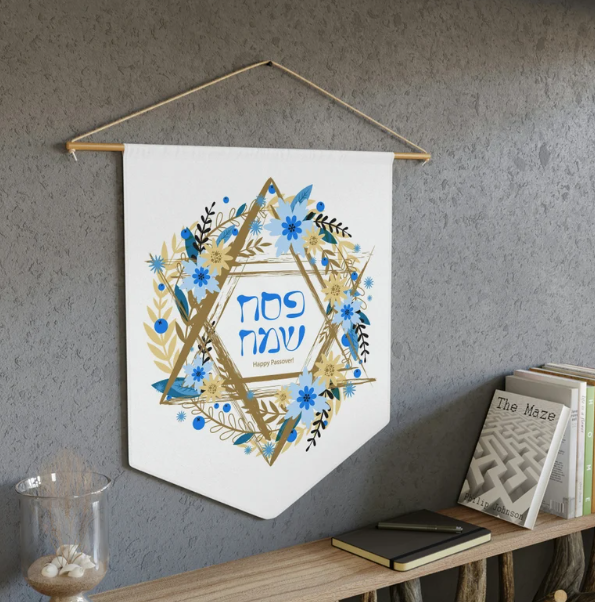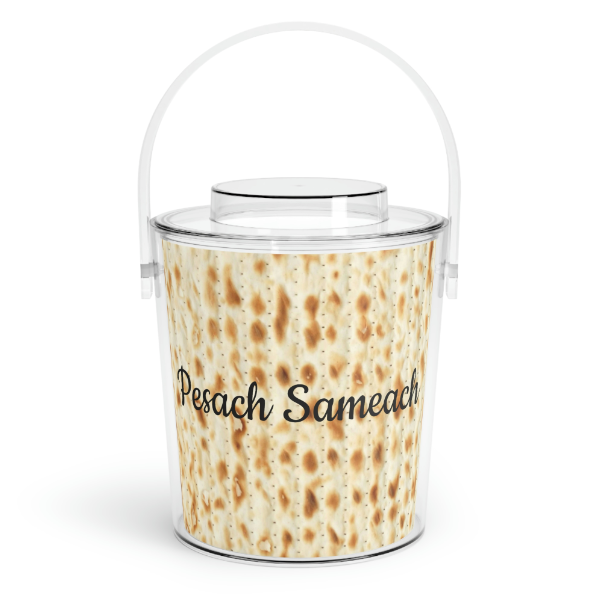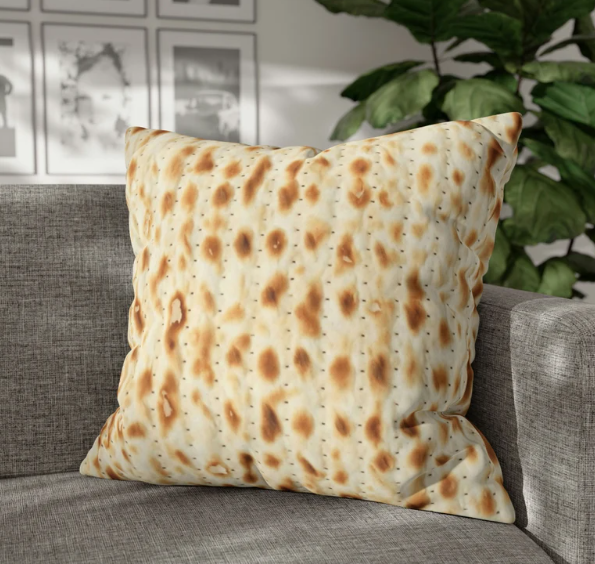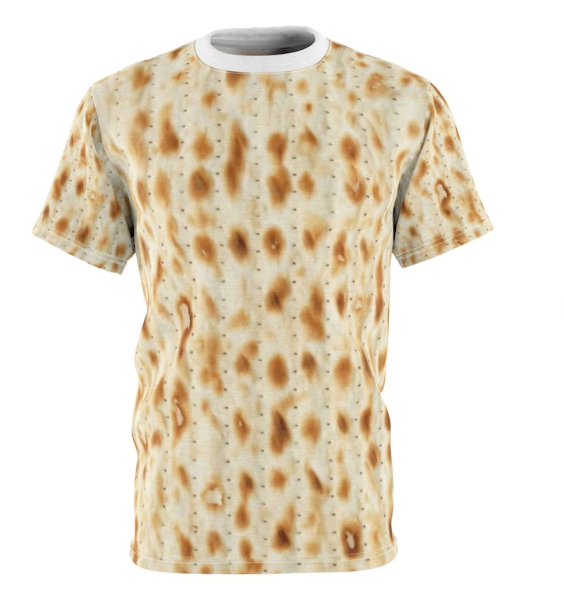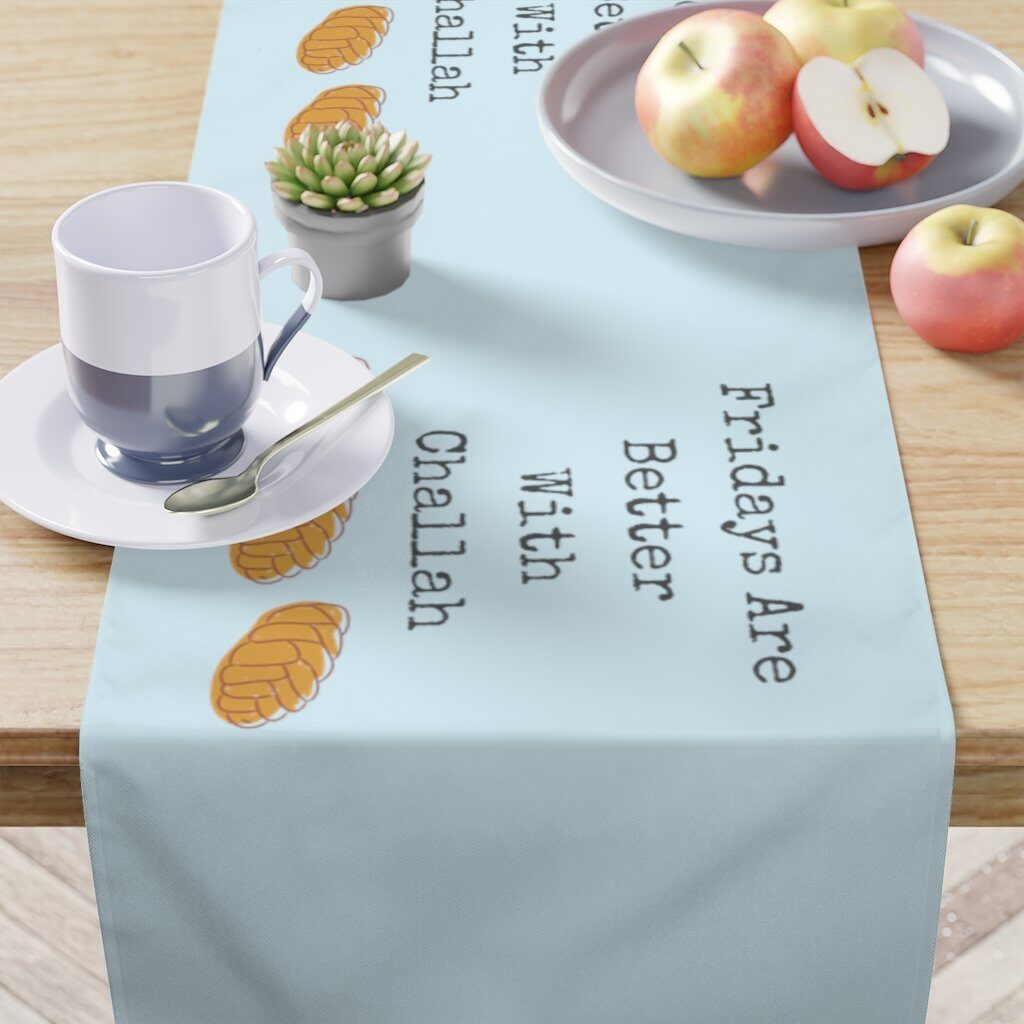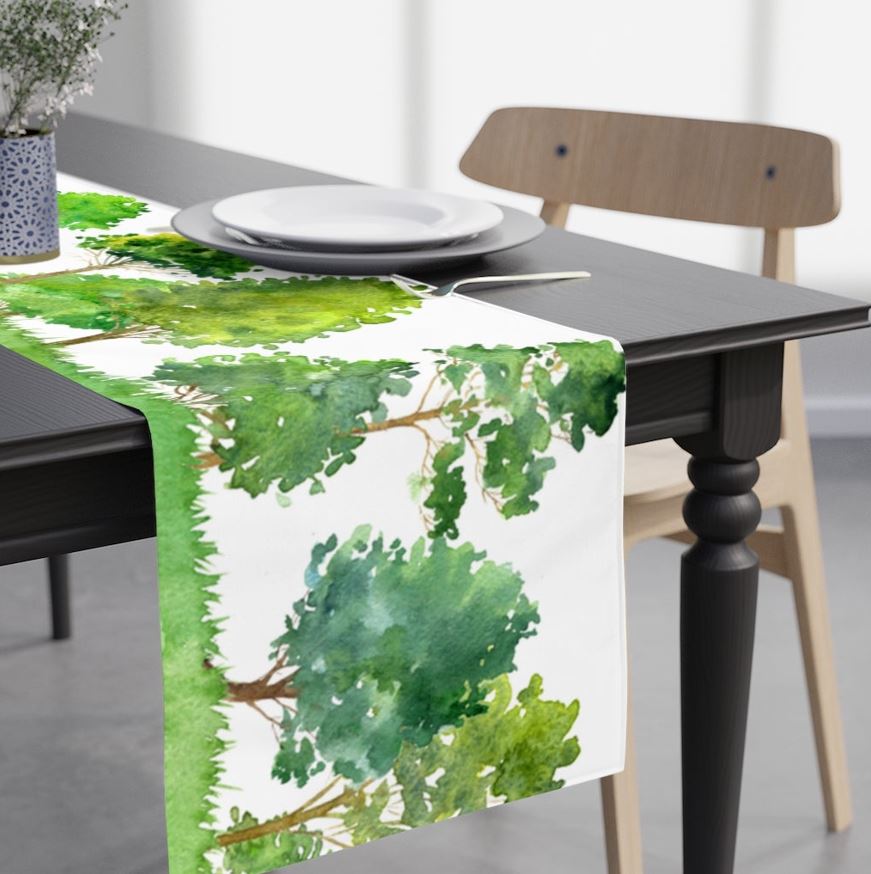During the Passover Seder, four questions known as the “Ma Nishtana” are traditionally asked by the youngest person present. These questions are designed to initiate a discussion about the significance of the Passover holiday and its traditions. The four questions are:
“Why is this night different from all other nights?” This question asks why the Passover Seder is different from a typical night, highlighting the unique customs and rituals of the holiday.
“Why do we eat unleavened bread (matzah) instead of regular bread?” This question refers to the custom of eating matzah, which is unleavened bread, during Passover. The answer relates to the story of the Exodus, when the Israelites were in such a hurry to flee Egypt that they didn’t have time to let their bread rise.
“Why do we eat bitter herbs?” This question refers to the custom of eating maror, or bitter herbs, during the Seder. The answer relates to the bitterness of slavery and the hardships the Israelites endured in Egypt.
“Why do we dip our food twice?” This question refers to the custom of dipping food twice during the Seder, once in salt water and once in charoset. The answer relates to the idea of experiencing both the bitter and sweet aspects of life, and remembering the hardships of slavery as well as the freedom of the Israelites.
Read on below for more interesting facts about Passover….
What is the difference between Seder and Passover
Passover and Seder are two related concepts in Jewish tradition, but they refer to different things.
Passover, also known as Pesach, is a major Jewish holiday that commemorates the Exodus of the Israelites from slavery in ancient Egypt. The holiday is celebrated over a period of seven or eight days, depending on one’s religious tradition, and involves special prayers, dietary restrictions, and other customs.
The Seder, on the other hand, is a specific ritual meal that takes place on the first two nights of Passover. The word “Seder” means “order” or “arrangement” in Hebrew, and refers to the structured format of the meal, which follows a specific order and includes specific foods and symbolic elements. During the Seder, the Haggadah (a special text that tells the story of the Exodus) is read, and the various symbolic foods (such as matzah, bitter herbs, and charoset) are eaten in a specific order while reciting prayers and blessings.
In summary, Passover is a holiday that commemorates the Exodus from Egypt, while the Seder is a specific ritual meal that takes place during the holiday to retell the story of the Exodus and symbolically reenact the journey from slavery to freedom.
How long is the Passover Seder?
The Passover Seder usually lasts for several hours, typically taking place on the first two nights of the Passover holiday. The length of the Seder can vary depending on factors such as the size of the group, the pace of the reading of the Haggadah, and the amount of discussion and commentary included.
The Seder is designed to be a leisurely and engaging experience, with many opportunities for questions, discussions, and reflections on the themes of the Passover holiday. The meal itself typically includes several courses of traditional Passover foods, such as matzah, bitter herbs, charoset, and various other dishes.
Overall, the Seder is an important and meaningful part of the Passover holiday, and provides an opportunity for families and communities to come together and celebrate this important event in Jewish history.
10 Things that happen at the Passover Seder
Kadesh: This step involves sanctifying the holiday by reciting the Kiddush, a prayer over a cup of wine.
Urchatz: This step involves washing the hands, which is traditionally done without reciting a blessing.
Karpas: This step involves dipping a vegetable (usually parsley or celery) into salt water and eating it, symbolizing the tears of the Israelites in slavery.
Yachatz: This step involves breaking the middle matzah in half, with one half set aside for later in the Seder.
Maggid: This is the storytelling portion of the Seder, where the Haggadah is read and the story of the Exodus is retold.
6.Rachtzah: This step involves washing the hands a second time, this time with a blessing, in preparation for the meal.
7. Motzi: This step involves reciting the blessing over the matzah and then eating it.
8. Maror: This step involves eating bitter herbs (usually horseradish), symbolizing the bitterness of slavery.
9. Korech: This step involves making a sandwich of matzah and bitter herbs, symbolizing the way the Israelites ate during their time in slavery.
10. Nirtzah: This final step involves expressing the hope for next year’s Seder and then singing songs of praise and gratitude.
FREE JEWISH WALL CALENDAR 2023/5783
The Kosher Hub has designed a beautifully iconic Jewish Calendar with all the important holidays for this coming year that you can download for FREE.

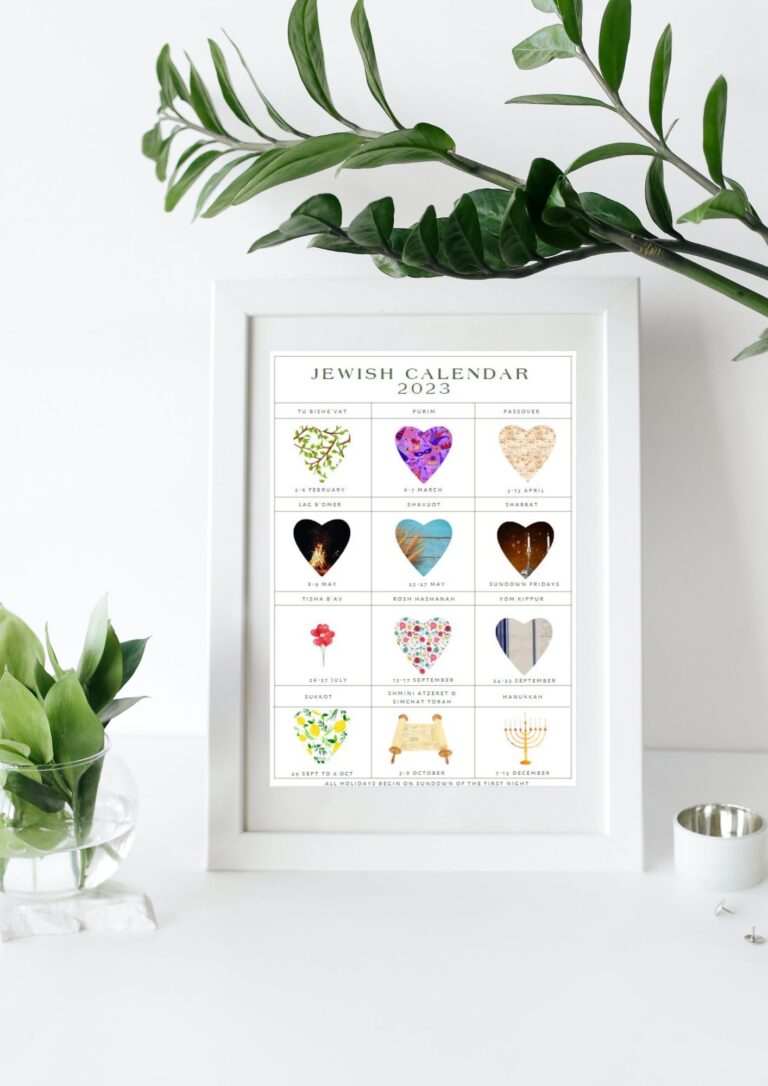
Can Passover and Easter be on the same day?
Passover and Easter are both religious holidays, but they are not usually celebrated on the same day. This is because they are based on different calendars.
Passover is a Jewish holiday that is based on the Hebrew calendar, which is a lunar calendar. Passover always begins on the 15th day of the Hebrew month of Nissan, which typically falls in March or April in the Gregorian calendar.
Easter, on the other hand, is a Christian holiday that is based on the Gregorian calendar, which is a solar calendar. Easter always falls on the first Sunday after the first full moon following the spring equinox, which typically falls between March 22 and April 25.
Although Passover and Easter are not usually celebrated on the same day, they can sometimes overlap or fall close together on the calendar. This can create scheduling challenges for people who celebrate both holidays or who have family members or friends who celebrate different holidays.
